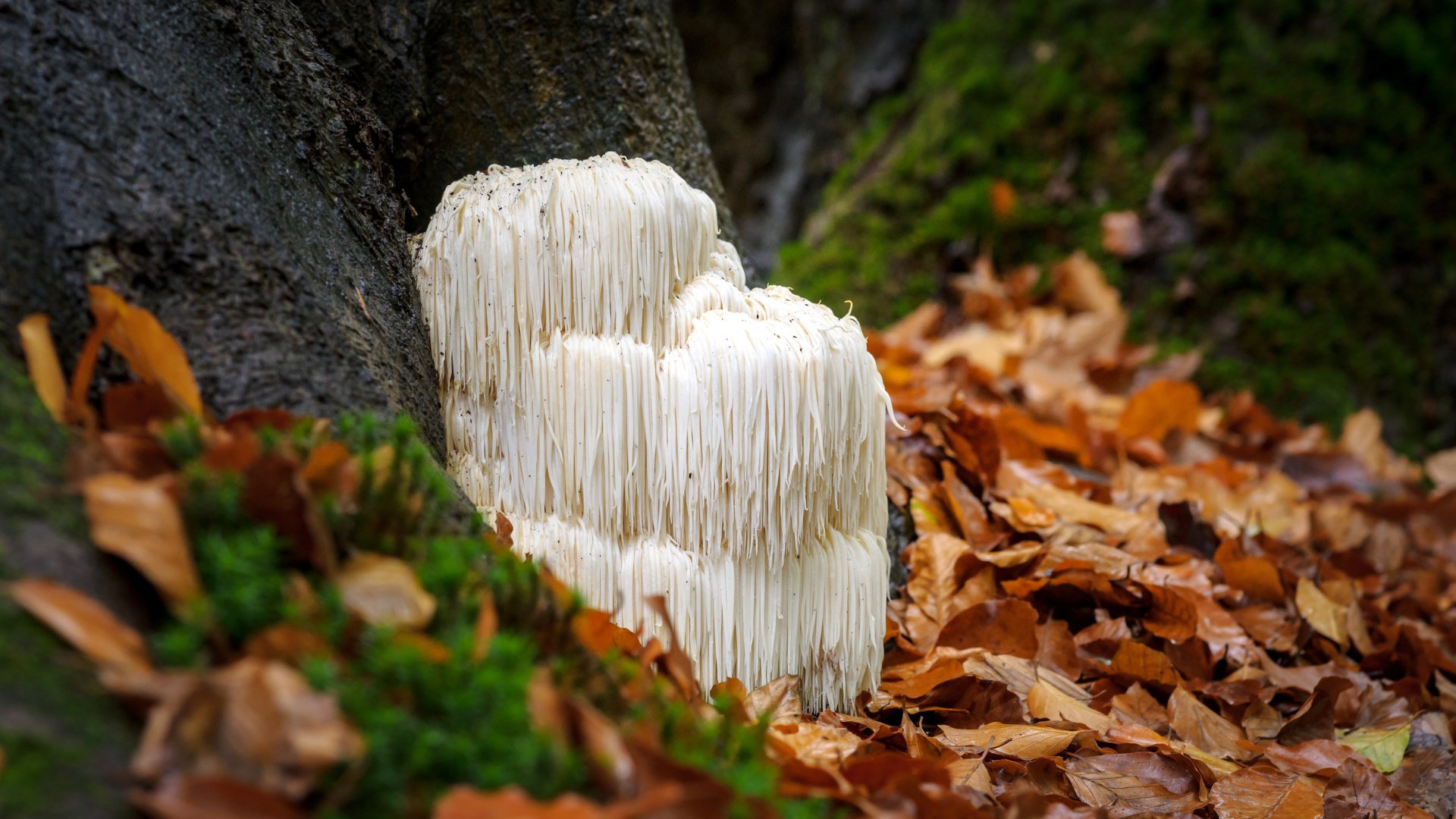White pompom
The lion's mane mushroom (Hericium erinaceus) is found in North America, Asia and Europe. This parasitic fungus mainly grows on old beech trees, forming large white mushrooms full of hanging spines (hence the Latin name "erinaceus" meaning hedgehog). The fungus is often sold under its French name "pom pom blanc" since it looks much like white cheerleader pompoms. Despite its negative effect on deciduous trees, the lion's mane mushroom has been used for centuries in traditional medicine in Asian countries for a variety of ailments and afflictions.
True or false?
Researchers at the Queensland Brain Institute are looking for bioactive substances from natural sources that can reach the brain and regulate the growth of neurons, resulting in improved memory formation. Eager to find out if there was truth behind the health claims of the lion's mane mushroom, they investigated its effect on our brain. And to their surprise, the fungus was found to have a positive effect on our brain cells.
Faster growth
In preclinical tests, several active compounds in the fungus were found to have a significant effect on brain cell growth and improving memory. Cultured neurons grew faster under the influence of the extract and made connections with other neurons faster: an important process in memory formation. The researchers hope their discovery can be used in the future to treat and prevent neurodegenerative cognitive disorders such as Alzheimer's disease.
Source:
Martínez-Mármol et al., Journal of Neurochemistry, 2023. Hericerin derivatives activates a pan‐neurotrophic pathway in central hippocampal neurons converging to ERK1 /2 signaling enhancing spatial memory.

